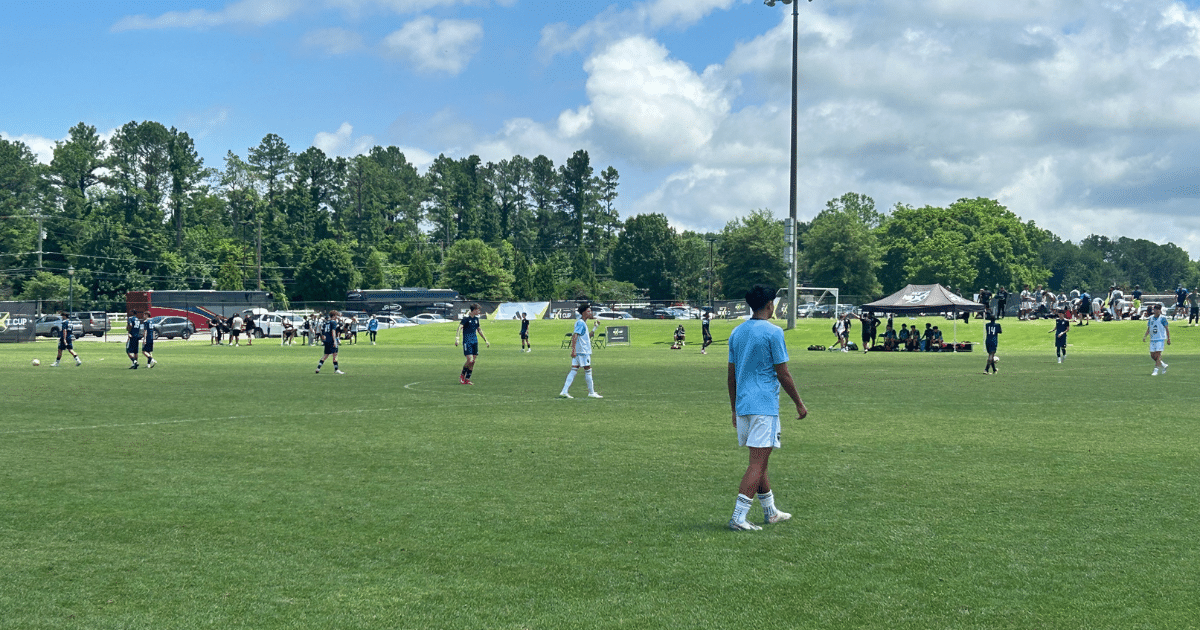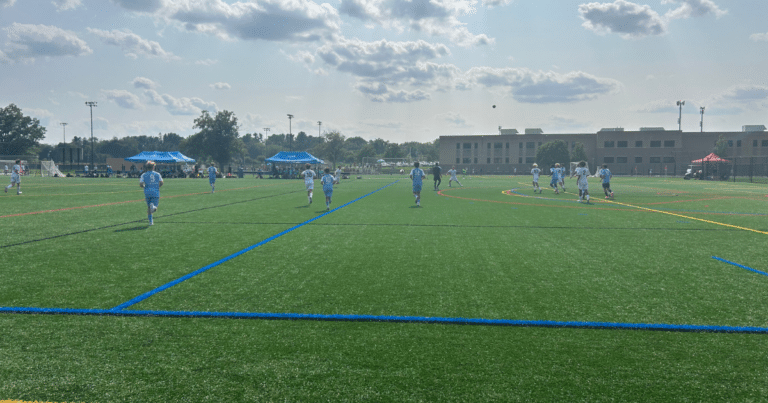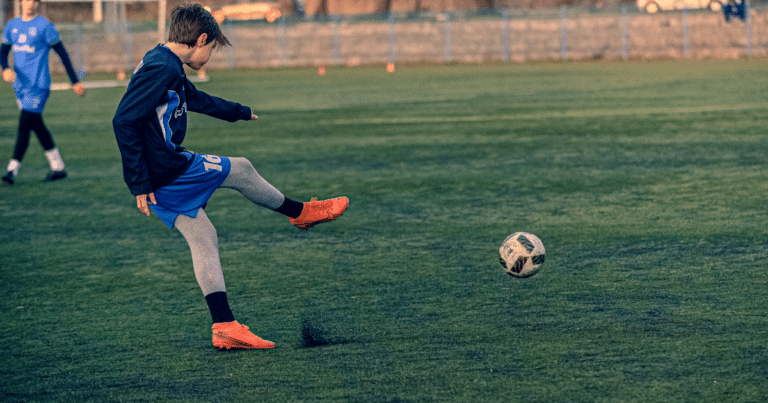How to Balance Fun and Competition in Youth Soccer

The secret to long-term success in youth soccer isn’t choosing between fun and competition—it’s finding the sweet spot where both can thrive together.
TL;DR:
What Does “Fun” Actually Mean?
Here’s the thing about fun in soccer—it’s not one-size-fits-all. Your neighbor’s kid might think fun is playing six times a week and dreaming of college scholarships. Meanwhile, your child might just want to hang out with friends and just run around.
Both are totally fine!
Some players get excited about tough practices and weekend tournaments. Others prefer the social side of soccer—team dinners, making friends, and celebrating small wins. The key is figuring out what fun looks like for your specific player.
Ask yourself: Does your child light up when talking about practice? Do they ask to play more, or do they seem relieved when the season ends? Their answers will tell you if you’re on the right track.
Elite Leagues Can Still Be Fun
Don’t let anyone tell you that MLS NEXT, ECNL, or Girls Academy automatically means the end of fun. These leagues are competitive, sure, but they can also be incredibly rewarding.
Think about it like this: some kids love challenging video games, others prefer easy ones. The same goes for soccer. High-level leagues offer better coaching, stronger teammates, and more opportunities to grow. For the right player, that’s actually more fun than being stuck in a league that’s too easy.
The trick is making sure your child is ready for the commitment. If they’re asking for more training and want to test themselves against better players, elite leagues might be perfect. If they’re already stressed about soccer, maybe pump the brakes.
Soccer Is Still Just a Game
This might sound obvious, but it’s worth repeating: soccer is a game. It’s not life or death. It’s not worth destroying family relationships or your child’s mental health.
Help your child understand that soccer is something they do, not who they are. They’re still the same awesome kid whether they score five goals or miss an easy shot. This mindset keeps soccer fun even when things get tough.
The Parent and Coach Problem
Let’s be honest—we adults often ruin youth sports. Soccer is no exception. I would actually say it’s one of the worst.
We get caught up in winning, scholarships, and living through our kids. Meanwhile, the players just want to play.
Here are some red flags to watch for:
- Coaches who yell more than they teach
- Parents who criticize their child’s performance on the car ride home
- Teams where winning matters more than player development
- Coaches who play favorites and/or ignore certain kids
If you see these things happening, speak up early. Talk to coaches about your concerns. Set boundaries with other parents. Most importantly, check in with your child regularly to make sure they’re still enjoying the experience.
Keep in mind that you can always change your situation. Sometimes staying at a certain club can weigh on the player so much that they become “depressed”. I’ve seen it happen and it’s sad. You always have options.
Good coaches make soccer fun while still being competitive. If your child’s coach can’t do both, it might be time to find a new team.
It’s Okay to Hit the Reset Button
Sometimes soccer stops being fun, and that’s okay. Maybe your child is burned out from playing year-round. Maybe the pressure got too intense. Maybe they just need a break.
Taking time off doesn’t mean quitting forever. It means being smart about long-term development. A few months away from soccer might help your child remember why they loved it in the first place.
Physical breaks are important too. Playing soccer 12 months a year leads to injuries and burnout. Even professional players take time off. Your 12-year-old needs rest even more.
Don’t be afraid to say “no” to that extra tournament or skip a training session for a family vacation. Soccer will still be there when you get back.
Enjoy the Moments
Here’s something every soccer parent needs to hear: this won’t last forever.
Your child will eventually stop playing youth soccer. They’ll grow up, move on to other things, and these Saturday mornings at the soccer field will become memories.
So enjoy them while you can. Celebrate the small wins. Laugh at the funny moments. Take pictures of your kid covered in mud after a rainy game. These are the things you’ll remember long after the wins and losses fade away.
Don’t get so focused on the future that you miss the present. College scholarships are great, but they’re not guaranteed. The joy of watching your child play the sport they love? That’s happening right now.
Making It Work
Balancing fun and competition isn’t about choosing one over the other. It’s about finding the right level for your child and keeping things in perspective.
Some kids thrive in competitive environments and find joy in the challenge. Others prefer a more relaxed approach where friendships matter more than trophies. Most kids fall somewhere in between.
The key is staying flexible and remembering that what works this year might not work next year. Kids change, interests change, and that’s perfectly normal.
Keep talking to your child about their experience. Ask what they love about soccer and what they’d like to change. Listen to their answers and adjust accordingly.
At the end of the day, youth soccer should add joy to your child’s life, not stress! When you get that balance right, competition becomes fun instead of overwhelming. And that’s when the real magic happens.

Written By: SoccerNovo
SoccerNovo is an independent youth soccer media brand built to help parents, players, and coaches better understand the game and the pathways available in U.S. soccer. Our mission is to make youth soccer simpler, clearer, and more accessible for everyone involved in it.
Let’s connect





